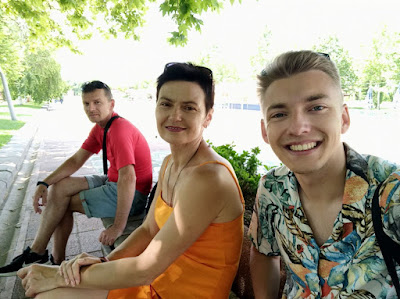Ready, Set, Paddle! The Presumpscot River Revival Race is returning after an absence of three decades.
The goal of the event is to “bring awareness and community to the river” says Leah Zwain of FOPR.
She is a FOPR intern who is enrolled in the master’s program for Policy, Planning, and Management, with a focus on sustainability, at the University of Southern Maine. As a registered Maine Guide and experienced whitewater paddler, Zwain is enthusiastic about getting people on the water.
FOPR have been increasing their outreach efforts to help build connection with the river and to each other. The organization provides that opportunity to connect through Community Paddle and Grill events and Evening Paddles on the Presumpscot. They also host conversations and presentations at local libraries or yacht clubs, partnering with other nonprofits such as Friends of Casco Bay.
Stephanie Noyes, a FOPR Board Member of two years, says, “Any profits will go back into the community.”
Some of the proceeds from the races will help with the FOPR school outreach program. It is designed to get students in Gorham, Westbrook, Windham, Portland, and Falmouth out on the water, and the program introduces children to the river. Students are taught paddling techniques and learn about the Wabanaki and industrial history of the waterway, while also discussing the future of the river.
While funds are being raised for outreach, Noyes says the true focus of the event is “everyone coming out and having a good time. Start your Saturday off with forest bathing and a few hours of fun on the water.” She said that families, children, and people of all levels of canoeing experience are welcome.
If you are not an avid paddler and prefer to watch the races, bring your lawn chair, sit on the beach, and join in on the fun. The Ugly Dumpling and Fred’s Fried Dough will be serving delicious sweet and savory foods there.
For those looking to compete, pre-registration on Eventbrite is encouraged. However, you can also register at Dundee Park starting at 8 a.m. Oct. 18.
It costs $25 per boat, and you can choose to canoe, kayak, or compete in stand-up paddleboard. There are multiple divisions with winners in all three categories.
Salmon Stew Outdoors, a paddle powered recreation company, is generously sponsoring the safety crew and providing the equipment needed to patrol the river. Certified Maine Guides make up the volunteer crew.
Other partners for the event include the Town of Windham who are reopening the park specifically for the race.
At the event, you can browse the FOPR information table where you can learn more about Dundee Park, the river, and the organization. Merchandise such as t-shirts, dry bags, books, and more will be available for purchase.
“We are excited to celebrate the ongoing revival of the Presumpscot,” Zwain said. “The event is an opportunity to celebrate 33 years of restoration efforts made by FOPR.”
It is also a celebration of change. This race was last held 30 years ago in 1995. Originally an event hosted by the owner of Maine Path & Paddle Guides, Master Recreational Maine Guide, and FOPR board member, David Butler, the event has returned 30 years later bigger and better than ever.
Competitors will be paddling the same exact route as in 1995.
We are coming back to the event to see what’s changed,” Zwain said. “It’s an opportunity to celebrate 30-plus years of restoration but also to notice the river’s rewilding.”
Many of us remember that Dundee Park taught us a lesson last summer after a malfunction at Dundee Dam in Windham led to the draining of Dundee Pond and an ancient and dam-less river returned.
The disappearance of the pond came as a total shock to everyone, but the formation of this river and what was revealed below, even more so. Last year, standing at Dundee Park and looking out over the lost river, it was difficult not to notice its dramatic features.
Stumps that were hundreds of years old were revealed and plants which were dormant for just as long began to see the sun once again. Birds foraging in the barren pond bed triggered the memory that riparian life once thrived among the shores of the river.
After experiencing this rapid rewilding and a dam-less Presumpscot River, we can all rejoice in the river’s restoration while also enjoying the recreational benefits of Dundee Pond.
Zwain says, “Bringing more of these events to southern Maine is important for the health of the river and the health of our community.” The more that these places are valued, the more they will be protected.
“Healthy waters equal healthy communities,” says Zwain. It is important to appreciate the asset but also to have fun and celebrate what an amazing resource the river is.
River enthusiasts are encouraged to connect with FOPR at this event. You can chat with volunteers at the FOPR table about ways to get involved such as assisting with as in water quality monitoring, advocating for dam removal, helping school groups on the river, or joining a committee.
Fish biologists are particularly wanted as well as those with expertise on rivers, ecology, and history. However, “any skills can be put to use,” says Noyes.
Stay tuned for opportunities to get involved, sign up for email newsletter, and learn more about FOPR at www.presumpscotriver.org. <













